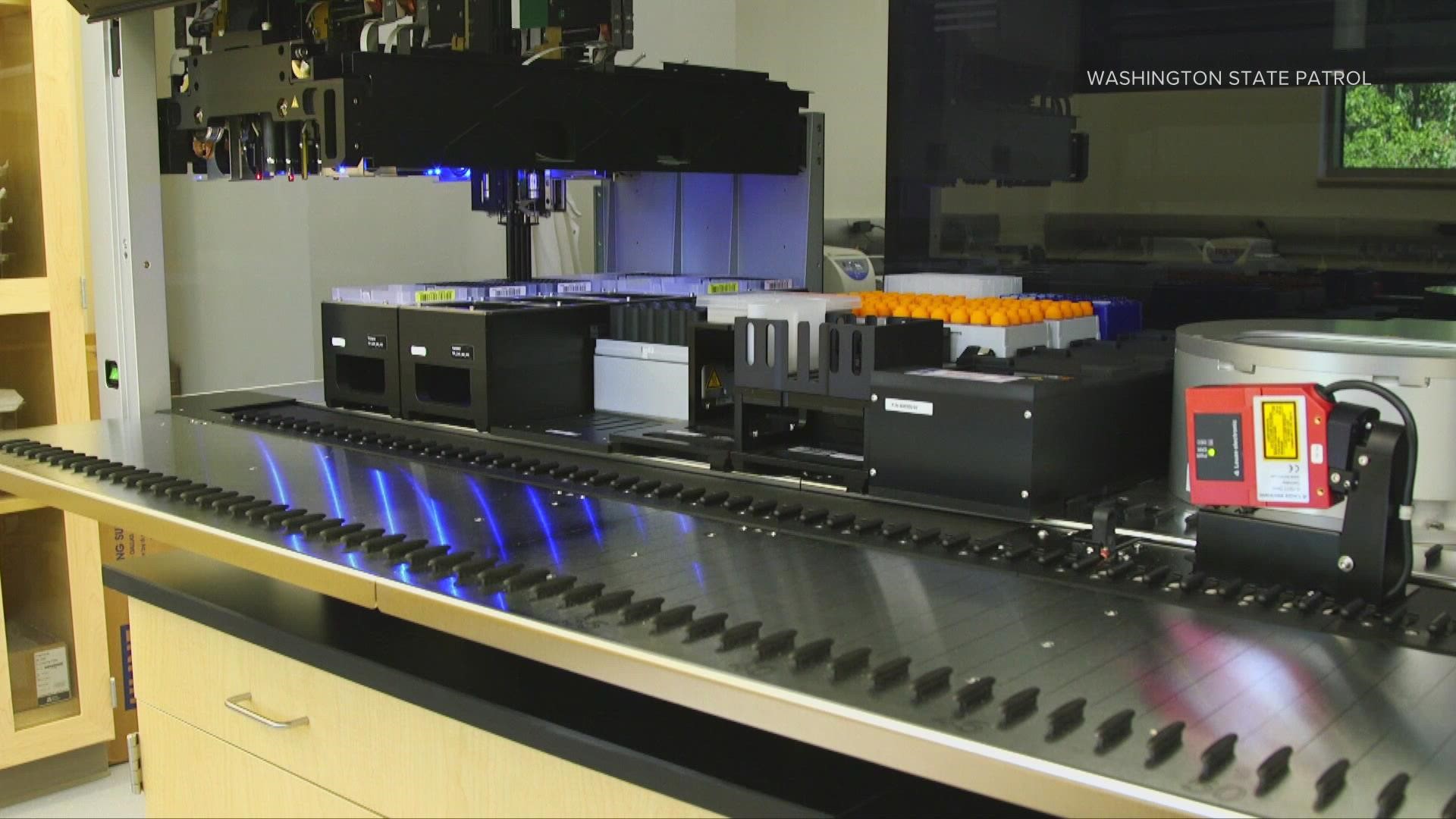OLYMPIA, Wash. — The Washington State Patrol will not meet a deadline set by legislators involving the timely processing of DNA test kits.
Under a law passed in 2019, the state patrol is supposed to process all kits involving DNA samples taken in rape investigations within 45 days, starting Sunday, May 1.
”We’re confident in saying that 90-95% of every new sample that comes in will be able to be turned around in that 45-day benchmark,” said state patrol spokesperson Chris Loftis. “And we’re confident it’s only going to get better every single month.”
Loftis said he expected to the state to be processing all tests within 45 days in “months, not years.”
The COVID-19 pandemic slowed the opening of the newly expanded crime lab in Clark County. The lab opened in June of 2020, in the early days of the pandemic. Equipment and personnel were slow to arrive, said Loftis.
"They weren't able to be delivered in the time frame we had thought because the actual models were directed to other labs to do COVID testing,” said Loftis. “The server engineers who were going to calibrate them and do the programming ... they were diverted by COVID testing."
In 2018, the state identified approximately 10,000 DNA test kits that had not been processed, Loftis said. Some of the kits were sitting on shelves of police departments for years. Those kits were sent to crime labs in other states.
Loftis estimated the outstanding cases are now closer to 1,700. He expected those to be processed in a matter of months.
In 2019, on average, it took the state patrol 682 days to process a test, Loftis said. That’s when Rep. Tina Orwall’s bill, setting the 45-day benchmark, passed.
“We knew it was a big lift,” said Orwall, D-Des Moines.
Considering all the issues caused by the pandemic, Orwall said she is satisfied with the progress made by the state patrol processing outstanding kits as well as speeding up the process for incoming ones.
“I know by the end of the year, that chapter will be closed. And thanks to our new tracking system, the high throughput lab, this will never happen again in our state where they'll sit on a shelf and be forgotten,” Orwall said.

